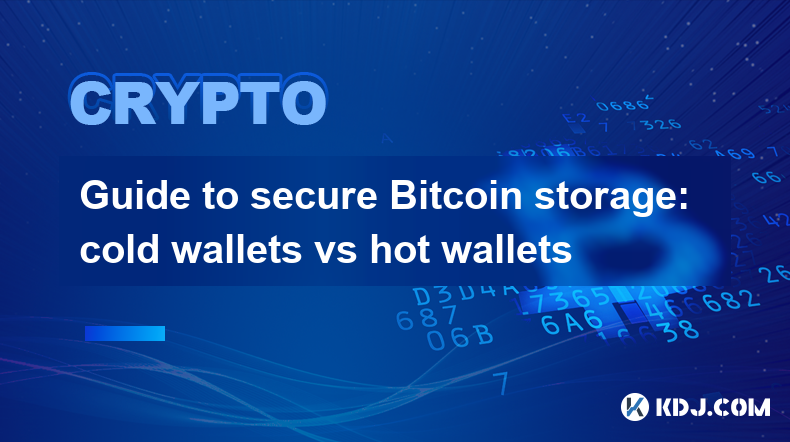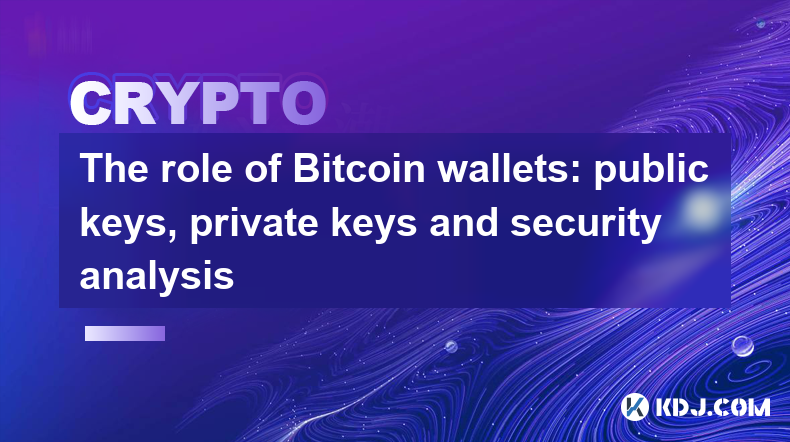-
 Bitcoin
Bitcoin $84,562.4199
1.10% -
 Ethereum
Ethereum $1,613.6726
2.18% -
 Tether USDt
Tether USDt $0.9998
0.02% -
 XRP
XRP $2.1466
4.66% -
 BNB
BNB $592.5009
0.70% -
 Solana
Solana $128.5836
4.03% -
 USDC
USDC $0.9998
-0.01% -
 Dogecoin
Dogecoin $0.1647
1.19% -
 TRON
TRON $0.2473
-0.59% -
 Cardano
Cardano $0.6454
1.79% -
 UNUS SED LEO
UNUS SED LEO $9.3620
0.01% -
 Chainlink
Chainlink $12.9628
1.93% -
 Avalanche
Avalanche $19.9455
4.73% -
 Sui
Sui $2.3294
5.93% -
 Stellar
Stellar $0.2429
2.88% -
 Shiba Inu
Shiba Inu $0.0...01233
0.61% -
 Hedera
Hedera $0.1711
1.84% -
 Toncoin
Toncoin $2.9002
-0.26% -
 Bitcoin Cash
Bitcoin Cash $339.0129
7.27% -
 MANTRA
MANTRA $6.2906
-1.47% -
 Litecoin
Litecoin $78.6335
3.49% -
 Polkadot
Polkadot $3.6428
2.11% -
 Hyperliquid
Hyperliquid $16.1114
2.18% -
 Dai
Dai $1.0000
0.01% -
 Bitget Token
Bitget Token $4.3829
1.02% -
 Pi
Pi $0.7398
10.62% -
 Ethena USDe
Ethena USDe $0.9990
0.02% -
 Monero
Monero $207.7082
0.81% -
 Uniswap
Uniswap $5.4275
3.04% -
 OKB
OKB $54.3649
2.25%
Guide to secure Bitcoin storage: cold wallets vs hot wallets
Cold wallets offer high security for Bitcoin storage by staying offline, while hot wallets provide convenience but are more vulnerable to hacks. Use both for optimal safety.
Apr 11, 2025 at 08:42 am

Guide to Secure Bitcoin Storage: Cold Wallets vs Hot Wallets
When it comes to storing Bitcoin, security is paramount. The choice between cold wallets and hot wallets can significantly impact the safety of your digital assets. This guide delves into the differences between these two types of wallets, their respective advantages and disadvantages, and how to use them effectively to secure your Bitcoin.
Understanding Cold Wallets
Cold wallets are offline storage solutions that keep your Bitcoin completely disconnected from the internet. This isolation significantly reduces the risk of hacking and unauthorized access. There are several types of cold wallets, including hardware wallets, paper wallets, and even steel wallets.
Hardware wallets are physical devices that store your private keys offline. Popular options include the Ledger Nano S and Trezor. These devices are designed to be user-friendly and provide a high level of security. To use a hardware wallet, you typically follow these steps:
- Purchase a hardware wallet from a reputable seller.
- Set up the device by following the manufacturer's instructions, which usually involves generating a seed phrase.
- Transfer your Bitcoin to the wallet's address using a secure computer.
- Store the device in a safe place, and keep the seed phrase in a secure location separate from the device.
Paper wallets involve printing your private keys and public addresses on a piece of paper. While they are cost-effective, they require careful handling to prevent physical damage or loss. To create a paper wallet, you can use online generators, but it's crucial to do so on an offline computer to avoid potential malware risks.
Steel wallets are a more durable form of cold storage, where your private keys are engraved onto a piece of metal. These are ideal for long-term storage and can withstand fire, water, and other physical threats.
Understanding Hot Wallets
Hot wallets are connected to the internet, making them more convenient for frequent transactions but also more vulnerable to cyber attacks. They come in various forms, including software wallets, mobile wallets, and web wallets.
Software wallets are applications installed on your computer or laptop. Examples include Electrum and Bitcoin Core. To set up a software wallet, you typically:
- Download the wallet software from the official website.
- Install the software and follow the setup instructions to generate a new wallet.
- Secure your computer with up-to-date antivirus software and a strong firewall to protect your wallet.
Mobile wallets are apps designed for smartphones, offering the convenience of managing your Bitcoin on the go. Popular options include Trust Wallet and Coinbase Wallet. Setting up a mobile wallet involves:
- Downloading the app from your device's app store.
- Creating a new wallet within the app, which will generate a seed phrase.
- Securing your mobile device with a strong password and enabling two-factor authentication.
Web wallets are online services that allow you to store and manage your Bitcoin through a web browser. While they are the most convenient, they are also the least secure due to their constant internet connection. Examples include Blockchain.com and Coinbase. To use a web wallet, you:
- Sign up for an account on the service's website.
- Create a new wallet and follow the instructions to secure it with a strong password and possibly two-factor authentication.
- Transfer your Bitcoin to the wallet's address.
Comparing Cold and Hot Wallets
Security is the primary difference between cold and hot wallets. Cold wallets offer the highest level of security due to their offline nature, making them ideal for storing large amounts of Bitcoin that you don't need to access frequently. Hot wallets, on the other hand, are more suitable for smaller amounts of Bitcoin that you use regularly for transactions.
Convenience is another key factor. Hot wallets are more user-friendly and allow for quick and easy transactions, which is beneficial for those who frequently buy, sell, or spend Bitcoin. Cold wallets, while more secure, require more effort to use, as you need to physically connect them to a device to initiate transactions.
Cost can also influence your decision. Cold wallets, especially hardware wallets, often come with a higher upfront cost, whereas many hot wallets are free to use, though they may charge transaction fees.
Best Practices for Using Cold and Hot Wallets
To maximize the security of your Bitcoin, consider using both cold and hot wallets in a complementary manner. Here are some best practices:
- Use a cold wallet for the majority of your Bitcoin holdings. This ensures that your long-term savings are protected from online threats.
- Keep a small amount of Bitcoin in a hot wallet for daily transactions. This minimizes the risk if the hot wallet is compromised.
- Regularly back up your wallets. For cold wallets, securely store your seed phrase. For hot wallets, ensure you have backups of your wallet files or seed phrases.
- Enable two-factor authentication on any hot wallet that supports it to add an extra layer of security.
- Keep your software and devices updated to protect against known vulnerabilities.
Choosing the Right Wallet for Your Needs
Selecting the right wallet depends on your specific needs and circumstances. If you are a long-term investor with a significant amount of Bitcoin, a cold wallet is likely the best choice. For those who frequently engage in transactions or need quick access to their funds, a hot wallet might be more suitable.
Consider your security needs. If you prioritize security above all else, a hardware wallet or another form of cold storage is the way to go. If convenience is more important, a software or mobile wallet might be more appropriate.
Evaluate your technical skills. Cold wallets often require a bit more technical know-how to set up and use securely. If you're not comfortable with the technical aspects, a user-friendly hot wallet might be a better fit.
Assess your transaction frequency. If you rarely need to access your Bitcoin, a cold wallet's security benefits outweigh the inconvenience. If you're making frequent transactions, the ease of use of a hot wallet is more beneficial.
Frequently Asked Questions
Q: Can I use both a cold and a hot wallet at the same time?
A: Yes, many Bitcoin users employ a strategy known as "cold storage for savings, hot storage for spending." You can keep the majority of your Bitcoin in a cold wallet for long-term security and a smaller amount in a hot wallet for everyday transactions.
Q: How do I transfer Bitcoin from a cold wallet to a hot wallet?
A: To transfer Bitcoin from a cold wallet to a hot wallet, you need to connect your cold wallet to a computer, initiate a transaction to the hot wallet's address, and confirm the transaction on the cold wallet device. Always ensure you're using a secure and trusted computer to avoid potential malware risks.
Q: What should I do if I lose my cold wallet or forget my seed phrase?
A: If you lose your cold wallet, you can recover your Bitcoin using the seed phrase, provided you have stored it securely. If you forget your seed phrase, unfortunately, there is no way to recover your Bitcoin, as the seed phrase is the only way to access your funds. This underscores the importance of securely storing your seed phrase.
Q: Are there any risks associated with using a hot wallet?
A: Yes, hot wallets are more susceptible to hacking and phishing attacks due to their internet connectivity. It's crucial to use strong passwords, enable two-factor authentication, and keep your software updated to mitigate these risks.
Disclaimer:info@kdj.com
The information provided is not trading advice. kdj.com does not assume any responsibility for any investments made based on the information provided in this article. Cryptocurrencies are highly volatile and it is highly recommended that you invest with caution after thorough research!
If you believe that the content used on this website infringes your copyright, please contact us immediately (info@kdj.com) and we will delete it promptly.
- Bitcoin (BTC) and Ethereum (ETH) Resistance and Support Levels
- 2025-04-13 15:50:12
- Florida Approves $1.5B Bitcoin Reserve Bill, Sending It to the State Legislature
- 2025-04-13 15:50:12
- South Carolina-Texas coin flip to decide SEC Tournament seeding
- 2025-04-13 15:45:12
- Meme Coins Are Taking Over the Crypto World: Discover the Next Troller Cat
- 2025-04-13 15:45:12
- Could RCOF Follow in the Footsteps of Avalanche and Solana?
- 2025-04-13 15:40:13
- Binance, the World's Largest Cryptocurrency Exchange, Is Back in the Spotlight
- 2025-04-13 15:40:13
Related knowledge

What is Bitcoin halving? Analysis of the impact on prices
Apr 09,2025 at 01:14pm
Bitcoin halving is a pivotal event in the cryptocurrency world that occurs approximately every four years, or every 210,000 blocks. The event is designed to reduce the rate at which new bitcoins are generated, thereby controlling inflation and increasing scarcity over time. During a halving, the reward that miners receive for successfully adding a block...

What to do if Bitcoin is stolen? Security protection and recovery possibilities
Apr 09,2025 at 03:42pm
If your Bitcoin is stolen, it can be a distressing experience, but there are steps you can take to protect your remaining assets and attempt to recover your lost funds. This article will guide you through the process of securing your Bitcoin and exploring recovery possibilities. Immediate Actions After Bitcoin TheftThe moment you realize your Bitcoin ha...

How to avoid Bitcoin investment scams? Common scams revealed
Apr 10,2025 at 05:14pm
Introduction to Bitcoin Investment ScamsBitcoin and other cryptocurrencies have become increasingly popular investment options, attracting both seasoned investors and newcomers alike. However, with the rise in popularity, there has also been a surge in Bitcoin investment scams. These scams can range from Ponzi schemes to fake exchanges and fraudulent in...

Guide to secure Bitcoin storage: cold wallets vs hot wallets
Apr 11,2025 at 08:42am
Guide to Secure Bitcoin Storage: Cold Wallets vs Hot Wallets When it comes to storing Bitcoin, security is paramount. The choice between cold wallets and hot wallets can significantly impact the safety of your digital assets. This guide delves into the differences between these two types of wallets, their respective advantages and disadvantages, and how...

What is Bitcoin fork? Differences between BTC, BCH, and BSV
Apr 10,2025 at 02:21am
A Bitcoin fork refers to a change in the underlying protocol of the Bitcoin blockchain, which results in a divergence into two separate versions of the blockchain. This can happen as a result of a disagreement within the community about the direction of the cryptocurrency, or to introduce new features or improvements. There are two main types of forks: ...

The role of Bitcoin wallets: public keys, private keys and security analysis
Apr 09,2025 at 03:00am
Bitcoin wallets play a crucial role in the world of cryptocurrency, serving as the gateway to securely store, send, and receive Bitcoin. Understanding the intricacies of Bitcoin wallets, particularly the concepts of public keys, private keys, and security analysis, is essential for anyone looking to navigate the cryptocurrency landscape safely and effec...

What is Bitcoin halving? Analysis of the impact on prices
Apr 09,2025 at 01:14pm
Bitcoin halving is a pivotal event in the cryptocurrency world that occurs approximately every four years, or every 210,000 blocks. The event is designed to reduce the rate at which new bitcoins are generated, thereby controlling inflation and increasing scarcity over time. During a halving, the reward that miners receive for successfully adding a block...

What to do if Bitcoin is stolen? Security protection and recovery possibilities
Apr 09,2025 at 03:42pm
If your Bitcoin is stolen, it can be a distressing experience, but there are steps you can take to protect your remaining assets and attempt to recover your lost funds. This article will guide you through the process of securing your Bitcoin and exploring recovery possibilities. Immediate Actions After Bitcoin TheftThe moment you realize your Bitcoin ha...

How to avoid Bitcoin investment scams? Common scams revealed
Apr 10,2025 at 05:14pm
Introduction to Bitcoin Investment ScamsBitcoin and other cryptocurrencies have become increasingly popular investment options, attracting both seasoned investors and newcomers alike. However, with the rise in popularity, there has also been a surge in Bitcoin investment scams. These scams can range from Ponzi schemes to fake exchanges and fraudulent in...

Guide to secure Bitcoin storage: cold wallets vs hot wallets
Apr 11,2025 at 08:42am
Guide to Secure Bitcoin Storage: Cold Wallets vs Hot Wallets When it comes to storing Bitcoin, security is paramount. The choice between cold wallets and hot wallets can significantly impact the safety of your digital assets. This guide delves into the differences between these two types of wallets, their respective advantages and disadvantages, and how...

What is Bitcoin fork? Differences between BTC, BCH, and BSV
Apr 10,2025 at 02:21am
A Bitcoin fork refers to a change in the underlying protocol of the Bitcoin blockchain, which results in a divergence into two separate versions of the blockchain. This can happen as a result of a disagreement within the community about the direction of the cryptocurrency, or to introduce new features or improvements. There are two main types of forks: ...

The role of Bitcoin wallets: public keys, private keys and security analysis
Apr 09,2025 at 03:00am
Bitcoin wallets play a crucial role in the world of cryptocurrency, serving as the gateway to securely store, send, and receive Bitcoin. Understanding the intricacies of Bitcoin wallets, particularly the concepts of public keys, private keys, and security analysis, is essential for anyone looking to navigate the cryptocurrency landscape safely and effec...
See all articles






















































































